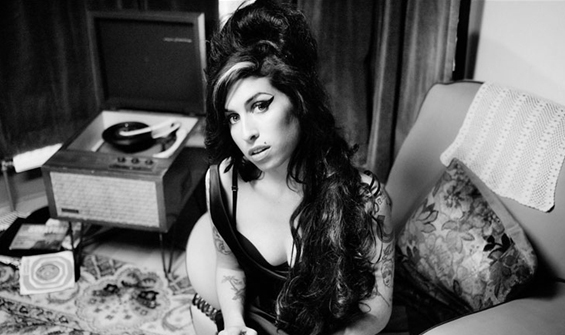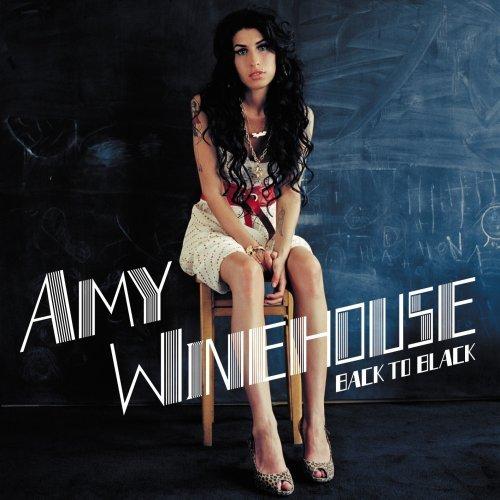I’d like to first give credit where it is due, and say sorry to my Dad. I was 13 at the time Amy Winehouse dropped her soon-to-be-classic Back To Black, and didn’t give his rave reviews enough credence. Fast forward eight years, a tragedy and a great loss to the music industry and the world, and I’m sad I didn’t listen to this album then. Thank you, Dad, for trying to show my stubborn brain what the rest of the world was about to realise.
It seems fitting this week, to “flashback” to 2007, with the release of the long-awaited documentary, Amy. Amy Winehouse was on the verge of having it all. Back To Black was one of the most highly anticipated albums of quite some time, and saw the singer experience a meteoric rise to stardom – which was, in turn, the cause of her demise. This is one of those albums that changed everything. Back To Black will be remembered not just in a few fans’ minds for sentimental reasons, but will be remembered due to the sheer, raw talent displayed by Winehouse, and what it did for a young girl from Northern London. She will forever be cemented as one of music’s greats, alongside Billie Holiday and Ella Fitzgerald, and rightly so.
In 2007, Amy was already notorious and creating serious buzz in the UK. She already had a name for herself for being unpredictable, brash and “wild”. She would do interviews, sure. But they were never sure what she’d say. She didn’t even have to try to distance herself from the rest of the pop world, she just did by being herself. Her smash single Rehab openly discussed of her refusal to go to rehab, even though she probably should have. No one else was even remotely near the rehab stage of fame, and here was Amy singing about not wanting to go. The other songs released that year were Avril Lavigne‘s Girlfriend, Rihanna‘s Umbrella and Big Girls Don’t Cry by fucking Fergie. Amy continually demonstrated she was in a league of her own, through her looks, her voice, her music and herself.
However, again credit is where credit is due to an at-the-time up and coming producer named Mark Ronson. He produced this album along with Salaam Remi, and gave it a certain life I am not sure it would have had, had it been produced by someone else. The chemistry between Ronson and Winehouse was a rare and fierce kind, and even though he had been producing the likes of Lily Allen, Macy Gray and even Sean Paul, it had never quite been like this. Harnessing her 60’s era, almost girl group vibes and transforming it with post-modern production, it’s the intricacies that only come with such a working relationship that take this album from great to excellent.
Moving seamlessly from Motown to jazz, heart-wrenching blues and even hip hop, Winehouse’s voice knew no bounds, and Ronson and Remi knew how to just tweak it enough to get it to where it could go. Her lyrics in this album are like constant stabs to your heart, especially with the added effect of hindsight. The heart breaking Tears Dry On Their Own, the self-depreciating You Know I’m No Good, the third person melancholy tale of He Can Only Hold Her, or the tale of devastating loneliness that is Wake Up Alone, this album has so much going on in it’s 11 tracks to tug at even the most emotionally stable’s heartstrings.
Showcasing the kind of divine miracle that was her voice, Remi, Ronson and Winehouse worked together to pull out all the stops, letting Amy breathe and be herself. From her voice cracking in Love Is A Losing Game, an all-too true insight in Addicted, her wicked sense of humour in Rehab and Me & Mr Jones or the stunning sorrow in Back To Black, this was as real as the woman herself – embracing her broken self and letting her wounds air out. She is so heart broken, exposing all of her emotional scars for the world to see. It’s like she stood on a pedestal and said, “This is me. Take it or leave it,” hiding behind her humour and voice to protect her.
This is the album that brought her to – and made her – in America, and consequently the world. My dad again said it best when he said to me, “The thing I love most about Amy Winehouse was the purity of her voice. People of my age would not like her because of the way she looked. But as soon as they heard that album, everything changed.” That’s exactly what happened. Not only did Back To Black change Amy’s world, but it changed everyone else’s too. Back To Black continues to be just as game-changing as it was the day it was released, eight years ago.
With the world now reliving it’s grief in conjunction with the release of the latest documentary of her life, it seems only fitting we remember her first and foremost for her music, her voice and her beautiful spirit. Maybe we will learn to stop this fascination that turns into obsession with fallen women, before we lose another young life too soon. Wherever you are Amy, I hope you’re at peace.


